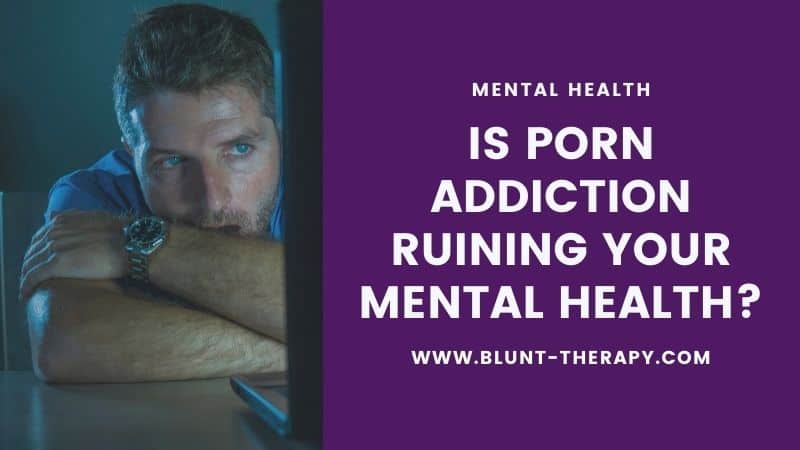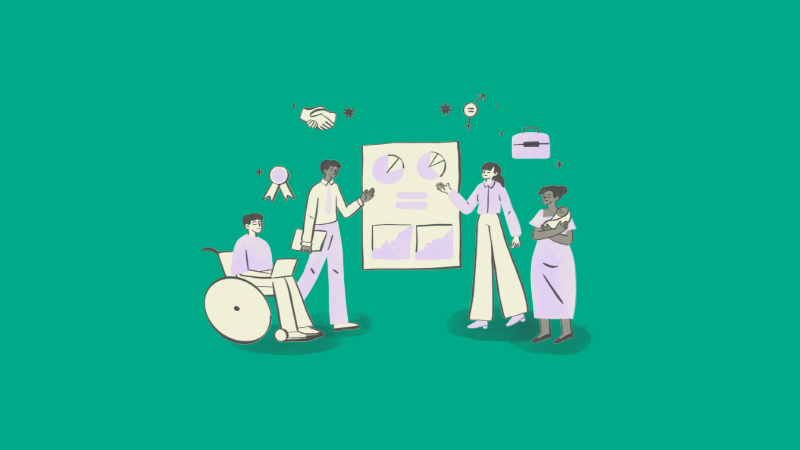Table of Contents
Affiliate link notice: As an affiliate of BetterHelp and other third-party vendors, We will receive compensation if you make a purchase using the links provided on this page. For more information, visit our disclosure page.
Last Updated on December 16, 2021 by Randy Withers, LCMHC
Have you ever Googled mental health symptoms in a self-diagnosis attempt?
If so, you’re not alone.
Through the course of just one year, digital health.net reports that over 100 million mental health-related Google searches took place in the UK alone, with anxiety and depression being two of the top searches.
While the internet is a great place to get basic information, you need to be careful about your research, especially when it comes to your mental health.
Here’s a video PsychCentral published about self-diagnosis of mental illness:
What Is Mental Health Self-Diagnosis?
With matters related to mental health, it’s important to use the right terminology. So let’s define what we mean by “mental health self-diagnosis.”
Mental health self-diagnosis is when a person applies diagnostic labels to a collection of symptoms that they notice about themselves. Often, people do this after researching health-related blogs in an attempt to understand what is going on.
Every recognized mental disorder has a list of criteria and symptoms associated with it. People find the disorders that most closely align with their symptoms and assume, often incorrectly, that the diagnosis is accurate.
This is totally understandable behavior. But let’s talk about why it’s a bad idea.
Here are 9 reasons why you shouldn’t use the internet for mental health self-diagnosis.
1. The internet is full of false information.
The internet is open to everyone in the world to write about anything they want, more or less; pseudo-experts abound.
When you use forums like r/mental health on Reddit, let’s say, you’re bound to come across people who are offering opinions, not professional advice.
Reddit probably isn’t the first place that trained doctors and therapists are choosing to spend their time.
It’s great to share stories about personal experiences when you need support, but relying on these types of venues for self-diagnosis could really cost you in the long run.
2. Cyberchondria is a real thing.
Internet searches can exacerbate anxiety and even lead to cyberchondria, a condition that is essentially the most extreme version of online symptom checking.
If you already suffer from anxiety, this may push you even further down that spiral when you should instead be doing everything you can to manage your mental health.
3. Diagnosing a mental health problem is not about ticking off a “checklist” of symptoms.
Say, for instance, you know you are borderline diabetic and have been experiencing some mild symptoms which might warrant a trip to the doctor, but you’re not sure whether it’s necessary.
Taking a look at an online symptom checker on a reputable site like the Mayo Clinic may help you make a decision about the type and urgency of treatment required.
But using such websites for a self-diagnosis of mental health problems is bound to leave so many factors out of the picture, and even lead to errors in treatment.
Take something like Post-Traumatic Stress Disorder. Look at the graphic below and you’ll see some of the diagnostic criteria.
That’s some complicated stuf!
While I encourage everyone to take their mental health just as seriously as any physical illness, there’s so much more to our physiology than can be explained with a list of symptoms.
4. Google didn’t go to graduate school.
The internet is a tool and sometimes a great one for research but it’s not a person who spent years in graduate school and logged hundreds of hours of work experience.
Nope — it doesn’t have a license, it doesn’t answer to ethics boards or understand context.
It can give you general information, but it won’t be able to have the detailed conversations needed in order to understand what you are going through, let alone how this relates to what your brain and body are doing.
5. A Mental health assessment should be both objective and comprehensive.
We all struggle with cognitive distortions even during the best of times. During a mental health crisis, our thoughts are bound to be even more skewed.
You need someone who can be objective in their assessment and diagnosis. This is something that doctors and psychotherapists spend years in training for.
A good healthcare professional will do a comprehensive analysis of your situation, taking into account contributing factors and co-occurring disorders — for instance:
- Substance abuse
- Physical abuse
- Childhood trauma
- Situational stress
- Family and relationship dynamics
- Physical illnesses
The last person that can do this well is you.
6. Mental Health Misdiagnoses happen all the time — even from trained medical professionals.
Patients have told me that they received the wrong diagnosis in the past, and have even been prescribed medication for illnesses they don’t have.
Doctors today are busy, and quality health care is not accessible to everyone.
ER doctors, interns and trauma surgeons, for instance, who treat a person in the ER may not be properly trained to do a proper mental health assessment.
Something that looks like a “mood swing” to one person could just be that, or it could be related to:
- Bipolar disorder
- Borderline personality disorder
- Major depression
- Anxiety disorders
- PTSD
- Hormone fluctuations
- Drug dependency
- Insomnia
Do you trust your doctor or therapist? Do they respect you and take the time to ask questions?
If not, it’s time to find someone you do trust and who believes you when you give them information about your health instead of turning to self-diagnosis which will be ineffective, at best.
7. Mental disorders exist on a spectrum.
Every mental disorder is a part of a spectrum and manifests differently in each person
Depression, for instance, may be mild, moderate, severe, or situational. It is more than just a “bad mood,” and everyone handles it differently.
Some are anxious and stay busy, others will hide in bed for days.
Context is also important — for instance, having daily anxiety and panic is not the same as having PTSD from serious trauma.
To add to this, often people diagnosed with a mental illness have one or more co-occurring disorders such as a substance abuse disorder.
8. Each person requires a different treatment plan which may need to be adjusted or completely changed over time.
I had a patient once who was worried she had bipolar disorder because she was acting “psycho” (her words).
She had been misdiagnosed by an ER doctor as bipolar, but it turns out it was really the meth she was addicted to that was making her act and feel this way.
In this case, she really needed to prioritize treating her addiction first and foremost, and once that was treated, she was mentally stable and able to function.
Treatment plans typically involve a combination of medication and therapy, as well as lifestyle adjustments and they vary widely between individuals because there are so many possible causal factors at play.
Self-diagnosis will not be able to take all of these things into account.
9. An Accurate Mental Health Diagnosis is Essential for Effective Treatment
If you are worried about problems related to your mental health or you’re worried about a loved one, you need to consult a registered professional, preferably in-person.
You’d do the same for your car if it was acting up; surely you have a similar amount of respect for your brain.
Always remember that people are more than the sum of their symptoms, and mental illness is serious and complex.
If you’re struggling with mental health, you’re not alone. There are a lot of resources such as BetterHelp and TalkSpace that you can access to get help.
If you are looking for a life coach to help you reach your goals, learn more about my coaching services here.
References
- The Dangers Of Online Self-Diagnosis
- Self-diagnosis on Internet not always good practice
- Why You Should Never, Ever Self-Diagnosis Using Google











